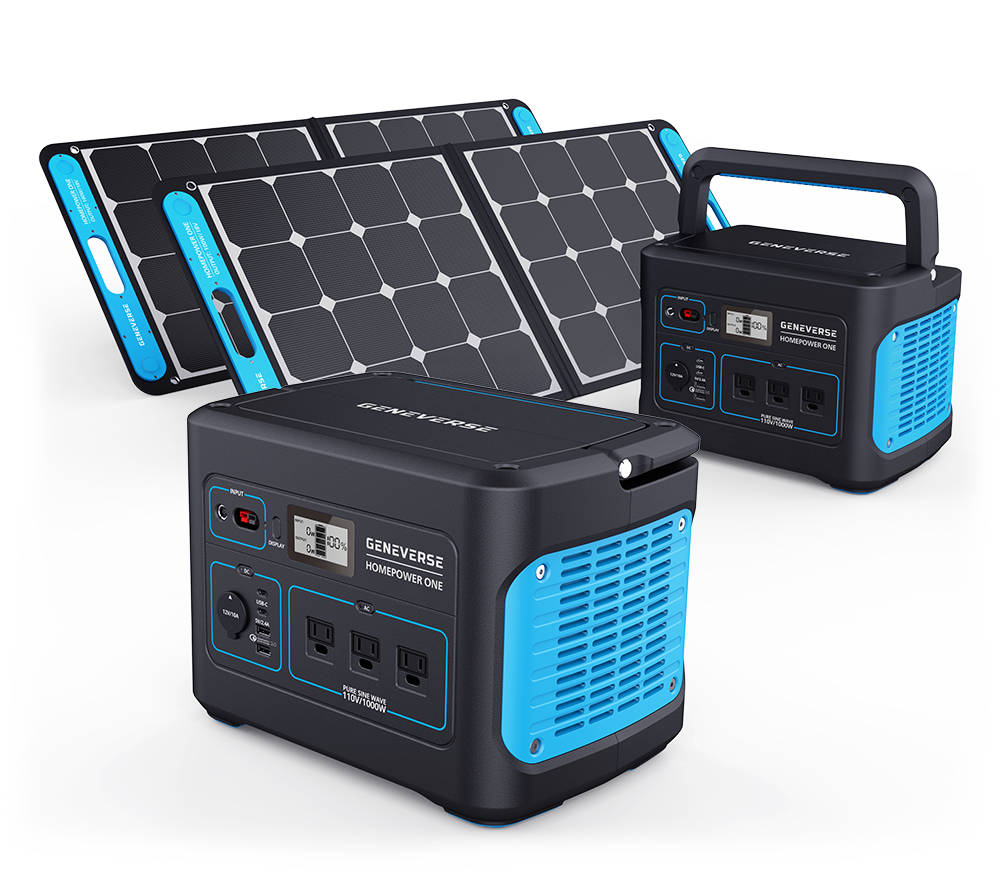When weather events are forecasted, you may not always be expecting the worst of what can actually happen. If a thunderstorm is reported, you may expect a power outage. If a snowstorm is coming, you may expect to not be able to drive on the roads for a few days. No one ever wants to think about having to evacuate their home in an emergency, and people often think that’s not something that would happen to them. With our ever-changing climate, you need to be prepared for the unexpected in order to keep your family safe.
When weather events are first reported, you should prepare your home as usual by filling your car with gas, learning evacuation routes, and preparing your emergency supply kit. When more dangerous natural disasters are approaching, like hurricanes or wildfires, you need to be prepared to leave your home in a hurry. Not all evacuation orders are given with ample warning, meaning you may not have time to think about what belongings you’d like to take with you. Danger levels can change as abruptly as the wind, and you need to be prepared for anything. Here are five things you should take with you when evacuating your home during a weather emergency.

1. Emergency Supply Kit
As with any emergency, you should have your emergency supply kit prepared at all times. The kit should include non-perishable food items, a gallon of water per person per day, medications, and hygiene supplies like wet wipes, diapers, and bandages. Include flashlights, batteries, blankets, and utensils. Keeping this kit well-stocked year-round will take one more thing off your plate when you’re packing in case of an emergency evacuation.
2. Identification & Important Documentation
You won’t know how long you’ll be out of your home when you’re first evacuating, so you want to ensure that you take all important and irreplaceable documentation with you. This includes your ID, passports, birth and marriage certificates, social security cards, and bank information. Keep all of these items together in one large envelope in a secure but accessible place in your home. This will eliminate the need to rifle through drawers looking for what you need while trying to get out in a hurry. You should also have your wallet, filled with cash and credit cards.
3. Electronics & Keepsakes
When preparing your evacuation supplies, it is important to not overpack, but sometimes there are items in your home that you simply can’t live without. If you run your own business, you may feel the urge to grab your laptop. Or if you have a generations old keepsake, you may not be able to imagine leaving without it. The rule of thumb for evacuations is to not impede or prolong your stay in a dangerous environment in order to get things out of the house. Pack an extra bag of any electronics, chargers, or irreplaceable items ahead of time so it is one less thing to think about when preparing to leave.

4. Clothing & Comfort Items
If there are reports of extreme weather that could lead to an evacuation, you should pack a small bag for each member of the family with a few extra necessities. Be sure to have a change of undergarments, comfortable shoes, and clothing that could be worn for any activity, whether it be sleeping or working on clean-up. If you’d be evacuating to a shelter rather than a hotel or relative’s home, include a blanket, pillow, or sleeping bag. You can also include small items that can bring comfort in a stressful situation, like a child’s stuffed animal. Once these bags are packed, leave them all together in an easily accessed room or place them in the car.

5. Portable Power Generator
Even if you have evacuated out of the dangerous conditions of a natural disaster, a power outage can be far-reaching and still affect you. Whether you’re in a shelter and don’t have access to a power outlet or at a friend’s house who has also lost power, you can benefit from bringing a portable power generator along with you. The HomePower ONE is a completely portable power station that provides emergency electrical power to home appliances and devices. You can charge communication devices or keep appliances like the refrigerator or microwave functioning.

Summary
When preparing for a natural disaster or another weather emergency, evacuation is also an option you should be prepared for. Never ignore official orders of evacuation, and even if it is just suggested, it is advised that you leave for a safer location. Keep your emergency supply kit stocked and ready to go, and pack a bag with spare clothing, electronics, and irreplaceable keepsakes. Organizing your important documents like social security cards, money, and ID will allow you to grab them and go as quickly as possible, and bringing along a portable power station like the HomePower ONE can help make any situation feel more secure by keeping you connected to your devices. When your bags are packed, store them all together or in the car so you can just worry about getting your family out of the house. If an evacuation feels imminent, learn the evacuation route early and get on the road to safety.
About Geneverse: Geneverse (formerly Generark) is the most reliablesolar generator and source of emergency backup power for your home and community. From theHomePower backup battery power station providing portable access to electricity, to theSolarPowersolar panels as a source for recharging, never be disconnected from what matters most to you. Learn more about how Geneverse and its industry-leading 5-year limited warranty can bring protection and security to your family ongeneverse.com. Never face a power outage alone, and power your home with a solar generator from Geneverse.




Leave a comment (all fields required)